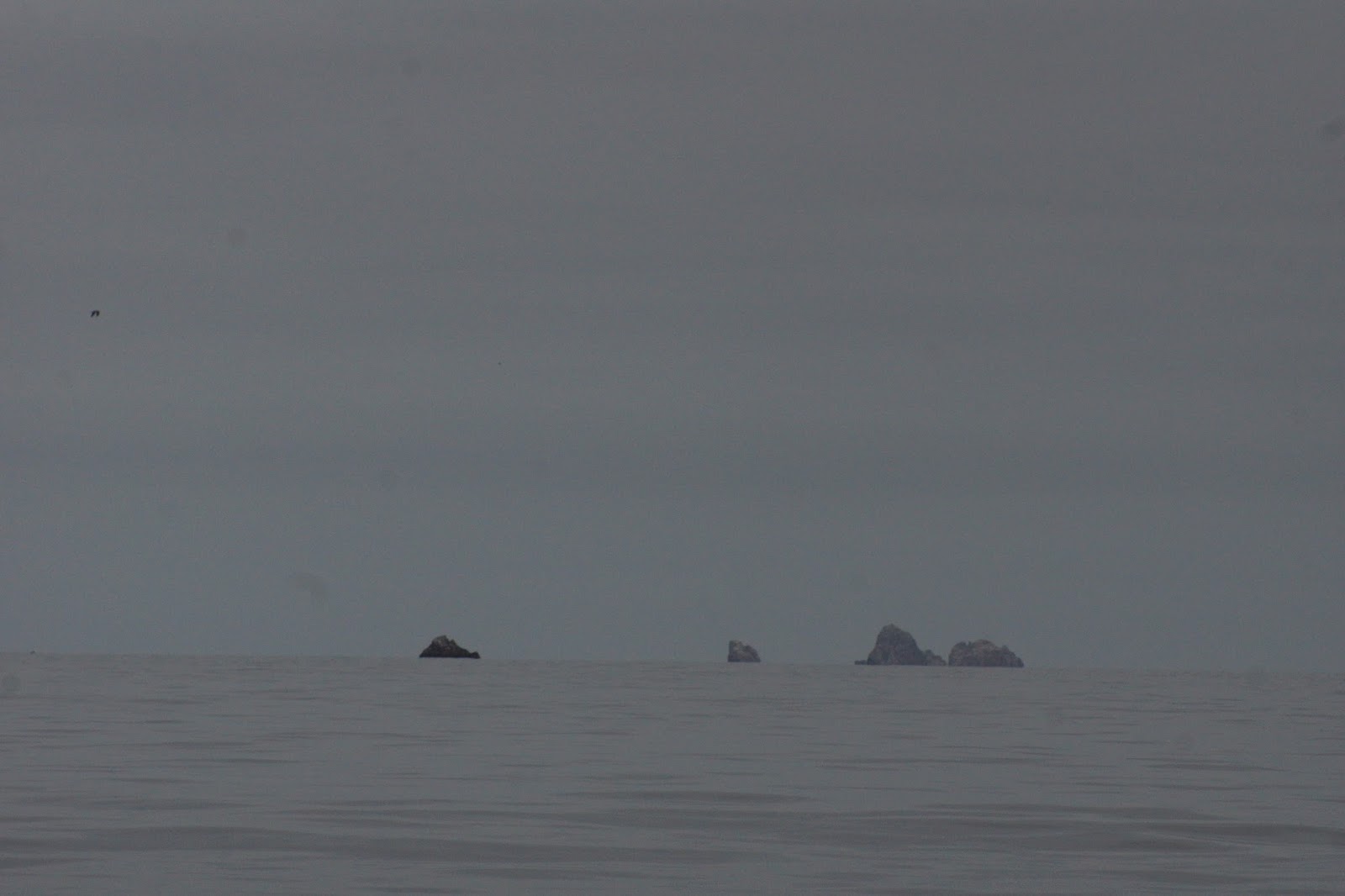After my two weeks of exploration, I returned to the island after doing a $800 shop for the islands' food, and an early start to get underway on a small sailboat. We sailed under the bay and golden gate bridges and out to sea through the fog.
Once we arrived at the island, I got to use east landing for the first time due to a replacement generator being finally in place. This means that instead of dodging swells within a small gulch on the exposed north side whilst passing supplies, gear and people up onto a small platform from a zodiac, the boat was lifted up by a crane. It was a lot calmer, and less stressful.
Due to this benefit being present, we were able to put the boat in the water on a calm day and go looking for whales and pelagic birds, whilst also giving me some experience with the crane, and using up old boat petrol that hadn't been used for quite some time.
 |
| Looking back at SEFI |
 |
| A grey whale up close |
 |
| Rhino auklet |
 |
| Northern fulmar taking off |
 |
| A sun-fish checked out the boat as Amanda Rick-rolled |
 |
| Peregrine falcon |
 |
| A group of stellar sea lions on North farallon |
 |
| SEFI in the distance through the North farallones |
 |
| The only northern gannet in the pacific (as known) |
 |
| Brown boobie |
 |
| Our house on the left, the coast guard house for visitors on the right, with the lighthouse above. |
The island has changed a lot in the last 2 weeks. The elephant seals have left in droves, leaving us with 3 cows as of today. California sea lions are hauling out a lot higher, meaning that some places are nearly inaccessible, and that much of the time is spent crouch-walking to avoid detection so that they don't flush into the water. This means that some research, especially shore-birds is a bit harder and requires a certain level of stealth. Western gulls have become more abundant, and are everywhere.
 |
| Western gulls on the trail |
 |
| Vegetation has also grown dramatically over the season due to a few days of heavy rainfall |
 |
| The gulls have also started to fight |
 |
| And are becoming territorial |
 |
| And gathering nesting material |
We also have done another west-end trip, and found over 200 northern fur seals. A dramatic increase from the 20 we found a few weeks ago.
 |
| A mass of fur seals, Californian sea lions, and elephant seals behind me. |
 |
| A group of young fur seals. |
Although the season has wound down considerably, it is nice to have more time to appreciate the island and do things that we haven't had time to before, such as explore the various caves around the island which we did last week.




































No comments:
Post a Comment